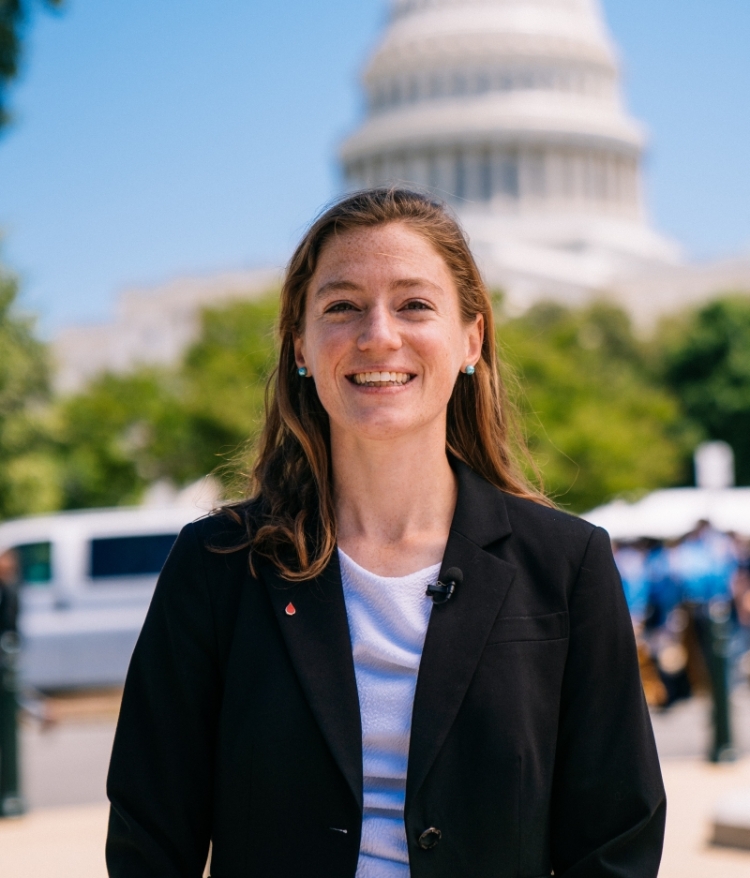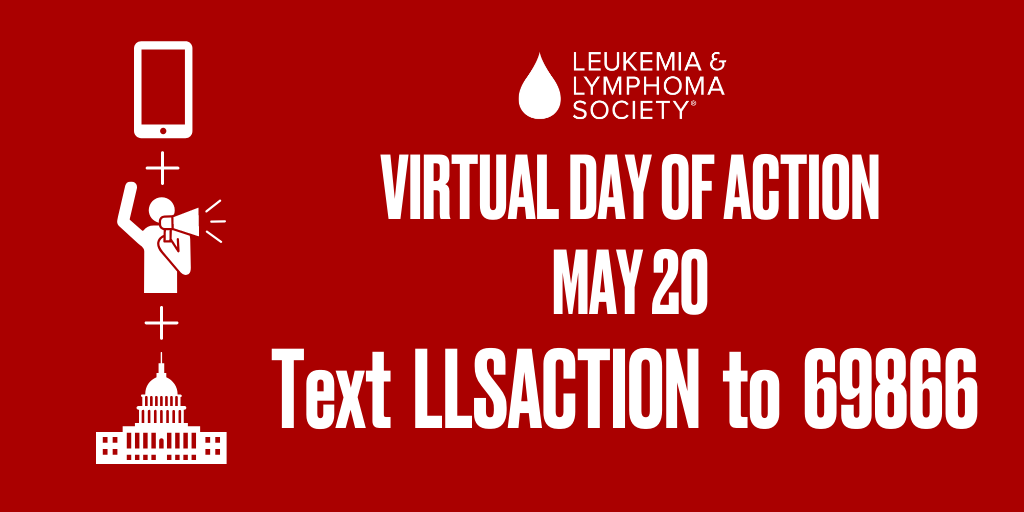
Amanda Steffy of Pasadena, Calif. is one of The Leukemia & Lymphoma Society’s most passionate policy advocates. She frequently travels to Washington, D.C. to speak with lawmakers about the importance of high-quality, affordable healthcare for cancer patients. In California, where she works as an instrument systems engineer for NASA JPL, she recruits and teaches others to do the same.
This May, Steffy joins LLS for its first-ever virtual advocacy event. In this interview, Steffy explains how she first became involved in advocacy and why she’s so passionate about the work.
When were you diagnosed with blood cancer?
I have chronic myeloid leukemia (CML), and I was diagnosed when I was 22 – in my last year of engineering school. It was a shock, and at first, really scary. I was young, and an athlete, and I never thought I would find myself in the doctor's office with this diagnosis. Fortunately, there's a targeted cancer drug, Gleevec, for my type of leukemia. I started treatment on that, and resumed some normalcy in life.
LLS had a role in supporting Dr. Brian Druker who led the development of Gleevec to treat CML. LLS helped save my life, and they are at the forefront of finding new treatments and cures. I wanted to try to do my part to help.
I got involved in Team In Training (TNT). Nine months into my treatment, I ran a marathon with TNT and qualified for the Boston Marathon. I just remember seeing the finish line and thinking “I can’t believe I did this.” I went on to do more with TNT and with Man and Woman of the Year in 2015. I ended up talking to the advocacy staff in California who encouraged me to get involved in advocacy. I had just done a fundraising campaign. I wanted to keep giving back, but I didn’t know if I could raise any more money right away.
I started by sending emails to my lawmakers and then was invited to travel to D.C. and meet with lawmakers in person. When I started I didn’t know anything about advocacy. I didn’t know anything about lawmaking or government other than what you learn in high school. But LLS said I should come and share my story.
The downside of this treatment that I’m currently on, and I’ll be taking for quite a long time, is that the out-of-pocket costs can be incredibly expensive for some patients. I talk to a lot of other young people across the country as part of the Patti Robinson Kaufmann First Connection Program, an LLS program that connects newly diagnosed patients or their caregivers with somebody who has ‘been through it.’ Often they say they don’t know how they’ll pay for treatment. That’s heartbreaking. We have new, cutting-edge treatments that are saving lives, but need policies that ensure people can afford them.
What was it like meeting with a member of Congress for the first time?
I was very nervous. We had practiced ahead of time and done some role-playing. I read about our policy asks. We had been meeting with congressional aids throughout the day, but we met with my member of Congress, Rep. Judy Chu, herself. I had been practicing until it was perfect. After she listened to our story she wanted to spend more time talking with me about what it all felt like. She wanted to know what my experience was like, on a personal level. That made me throw out the script. I just spoke from the heart. There’s no script for that.
I told her what it felt like to me – not just about the laws I was asking for, but about my experience. That was important, because patient stories are the most powerful piece of advocacy. (Watch video of Amanda and Rep. Chu here).
Why do you think advocacy is important?
Cancer treatment is incredibly expensive and access is critical. And the really hard part is, if you’re someone who is constantly trying to pay for your lifesaving treatment, you might not have the time to speak up about it. So I see it as my job to help speak up for those patients.
What do you say to others who are thinking about becoming involved in advocacy?
This has been an on-going effort in California. We’re trying to meet new people who don’t know about advocacy and may want to be involved. Advocacy gives you the opportunity to speak up for something you’re probably already interested in. We tell them there are opportunities to connect with elected officials and share personal experiences about issues that impact cancer patients. It’s an easy way to start being involved and make an impact by raising your voice.
What do you hope to accomplish with your continued involvement in advocacy?
We’re trying to build an advocacy presence across the state of California. We have very passionate advocates in Los Angeles and San Francisco, but we want to bring in more folks from other areas too who can share their story and build relationships with their own members of Congress.
What’s your advice to someone who is just starting to become involved in advocacy?
LLS teaches us that “you’re an expert at your story.” It’s the most powerful thing you bring to the table. It will pack a punch and explain why the issue is important.
The other thing to be aware of is that members of Congress receive so much information on so many different issues that they don’t necessarily know all the details or how their decisions will impact real life people. So it helps to speak from the heart.
The reaction I always receive is “I didn’t know about your experience, and I’m so glad that you shared it.” That’s something I didn’t necessarily expect when I became involved in advocacy. I thought it would be more about the technical side of legislation. But members of Congress don’t always know the personal experience of their constituents, and they’re grateful to hear it.
Our stories have the power to influence lawmakers who are making decisions on the issues impacting blood cancer patients.
Please consider becoming an advocate for blood cancer patients. You can start by joining us on our “Virtual Day of Action” on Wednesday, May 20. We’ll come together with one voice to tell Congress what it needs to do to protect blood cancer patients. Just text LLSACTION to 69866 to get involved.

